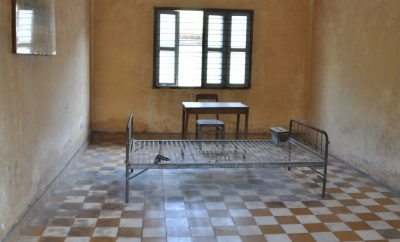 Image courtesy of [Daniel Oines via Flickr]
Image courtesy of [Daniel Oines via Flickr]
Schools
Paralegals Will Soon Be Able to Give Legal Advice in Washington
There’s a big, often unrecognized problem for our nation’s poor. Many do not have access to the legal resources they need to complete processes like divorce or custody battles. Legal help is extremely expensive, and unlike in criminal cases, anyone who is a party to a lawsuit is not automatically granted an attorney. So, Washington is trying to help with that, by introducing a Limited License Legal Technicians (LLLT) rule.
The LLLT program will allow candidates to take a year-long series of courses at community and state schools. Those classes particularly focus on things like legal research, civil procedure, and contracts. Then they’ll complete a sort of apprenticeship with a practicing attorney. After those steps are completed, the students can become licensed to advise on certain aspects of law, particularly family law issues. Right now, the Washington LLLT program focuses on family law, but if successful, it could probably end up being expanded. The biggest new power granted to these LLLTs is the ability to give legal advice, which is currently prohibited for paralegals or legal assistants.
As Steve Crossman, who heads up the LLLT board, stated:
One of the unique things about this is they can practice on their own; (unlike paralegals) they don’t need to practice under the supervision of lawyers. They can practice in conjunction with practicing lawyers so they work out of the same office. We’re thinking they also could work for a government-funded or volunteer legal-services agency.
The program has its beginnings in 2012, when the Washington Supreme Court adopted a rule allowing LLLTs. Since then, the program has been developed and refined a few times, and the first class of future LLLTs began in 2014.
Overall, the LLLT program is focused on cost on a few different levels. First of all, the program is much cheaper for students. It’s no secret that law degrees are incredibly expensive. In 2013, private law schools cost an average of nearly $42,000 a year, public law schools for residents cost nearly $25,000, and public law schools for non-residents cost almost $37,000. In comparison, an LLLT program costs only about $10,000.
These lower costs will translate to the clients. An extensive 2009 study from the Legal Services Corporation showed that somewhere between 80-90 percent of low-income Americans don’t have access to legal aid for their civil legal issues. The cost is pretty prohibitive, and because law school is so expensive, new lawyers can’t always lower their prices to provide low-cost aid. Empowering LLLTs will allow low-cost services. While there are legal aid programs, many are underfunded and understaffed.
Some have been comparing the work of LLLTs to nurse practitioners, or other medical professionals who aren’t doctors but can still perform some medical services. Given that the first group of LLLTs began classes last year, some will be ready to work as early as this Spring.
This is an innovative program that may solve a lot of problems, both for aspiring legal professionals and those who require legal help. If it’s successful, hopefully other states will create similar programs.








Comments